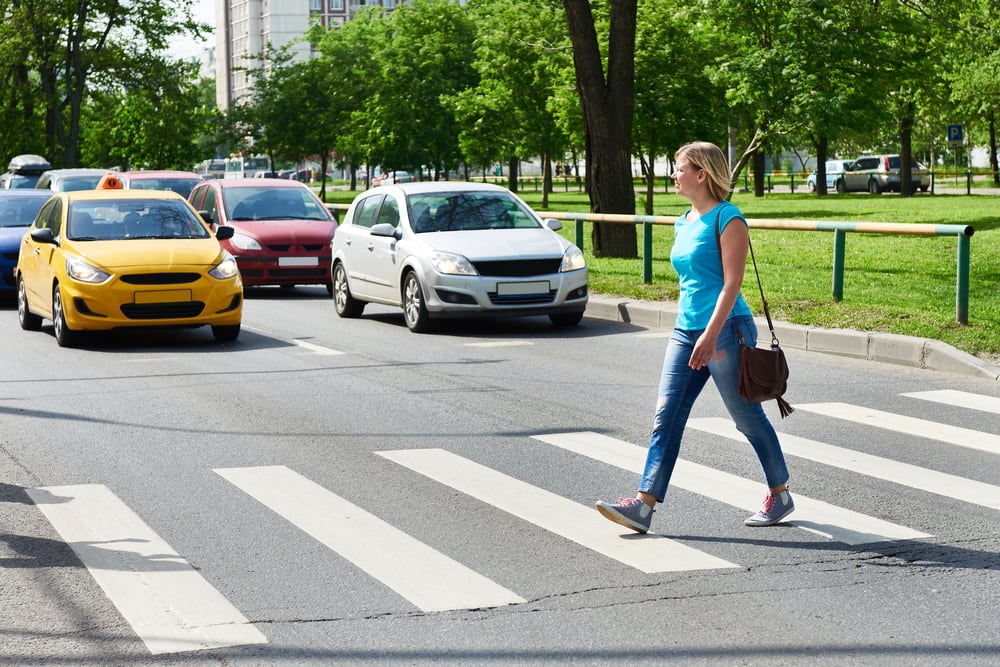

If you are in traffic, and there are no signs or signals telling you what to do, what recourse do you have? Well, you have to know the right-of-way laws as they apply in the state of Massachusetts. They’re in place to help you handle situations in traffic that are not regulated by means of signals or signs, and they can help you avoid a collision that could cause vehicle damage, injury, or even death.
Summary of right-of-way laws in Massachusetts
Right-of-way laws cover intersections, pedestrians, and emergency vehicles.
Pedestrians
Pedestrians have every bit as much right to be on the road as motorists, and it is your job to look out for them.
Always yield to pedestrians in roadways.
If you are stopped at a light that turns green, you have to yield the right of way to pedestrians who are crossing.
Look for pedestrians when you are turning. They have the right of way if they are crossing an alley, driveway, or using a sidewalk.
If you see a pedestrian that is accompanied by a dog in harness, or who is using a white cane, then you can assume that the pedestrian is blind. You must always come to a full stop if a blind pedestrian is crossing.
Intersections
Not all intersections will have signals.
Slow down at an intersection where there are no signals. Check for oncoming traffic, and do not proceed unless the route is unimpeded.
If there is already a vehicle in the intersection, you are required to yield the right of way.
You must yield the right of way to a vehicle on the right if you arrive at the intersection at the same time.
At a four-way stop, the right of way goes to the person who gets there first, and then in order to vehicles on the right.
When turning left, you must give right of way to any vehicle approaching you.
If you are entering a paved road from an unpaved road, the vehicle on the paved road has the right of way.
Rotaries
- In a rotary, you may not enter until you have a gap in traffic to your left. Motorists who are already in the rotary always have the right of way.
Emergency vehicles
- Emergency vehicles with sirens and lights on always have the right of way.
Common misconceptions about right-of-way laws in Massachusetts
The two most common misconceptions when it comes to Massachusetts right-of-way laws actually have to do with funeral processions and live animals.
Most likely, you’ll pull over as a matter of courtesy when a funeral procession goes by. Actually, you are required by law to do so. You may not interfere with a funeral procession, join it, or pass it. You are also prohibited by law from crossing an intersection if a funeral procession is approaching, even if you have a green light.
Now, as for animals, in the State of Massachusetts, people are still entitled to ride or drive horses on the highways. Animals are often easily frightened, so you have to pass carefully and drive slowly. If you do not, you can be charged with reckless driving. And if a rider or driver should happen to signal you to stop, you are required by law to do so.
Penalties for failure to yield
There is no point system in Massachusetts. Fines may vary depending on jurisdiction, but will not exceed $200.
For more information, refer to the Massachusetts Driver's Manual, Chapter 3, pages 95-97, 102-103, and 110.



